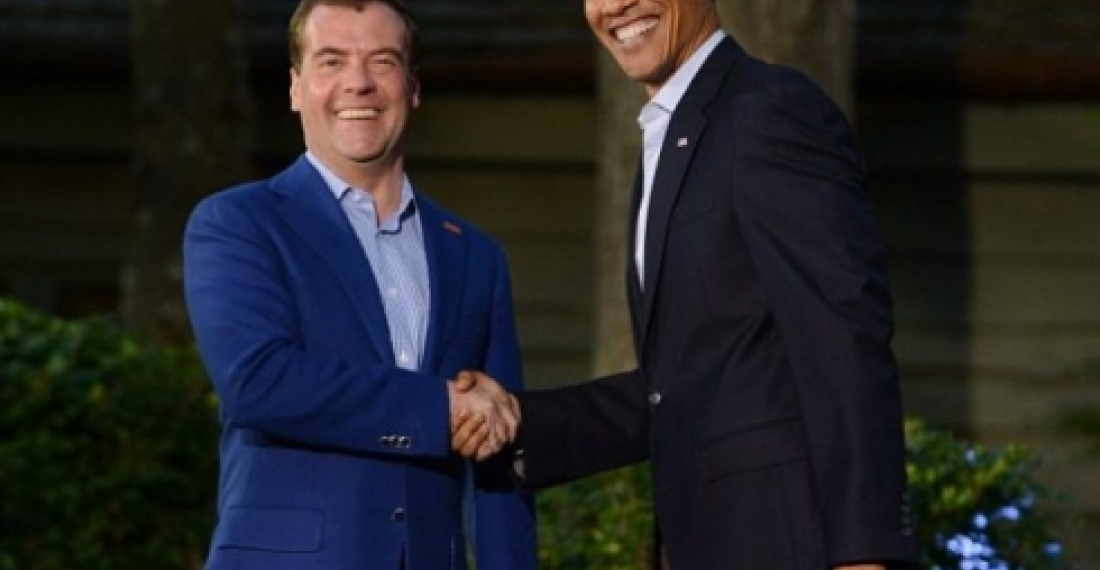The United States president Barak Obama had warm words for the Russian Prime Minister Dimitri Medvedev as he welcomed him to Camp David for the G8 Summit taking place there this weekend. "Dimitri, Good to see you my friend, How are you?" the US leader was heard saying to the Russian Prime Minister. Regardless of outstanding political problems the personal chemistry between the two men appears to be good.
Medvedev, who is deputising for Vladimir Putin at the gathering of world leaders, was wearing an electric blue jacket and seemed to be savouring the moment. Others attending the meeting in Camp David include the new French President Francois, Hollande, who earlier had a seperate bilateral meeting with Obama, as well as the leaders of Germany, Canada, the UK, Italy and Japan as well as the European Union.
Economic issues are expected to be the main focus of discussions during the meeting, but events in Syria and the Iran nuclear issue are also expected to be discussed. There could be some references to the South Caucasus in the final document, but at the moment the region is not the main focus of world leaders.
source: commonspace.eu
photo: President Obama greeting Prime Minister Medvedev at Camp David on 18 May 2012 for the G8 Summit.







